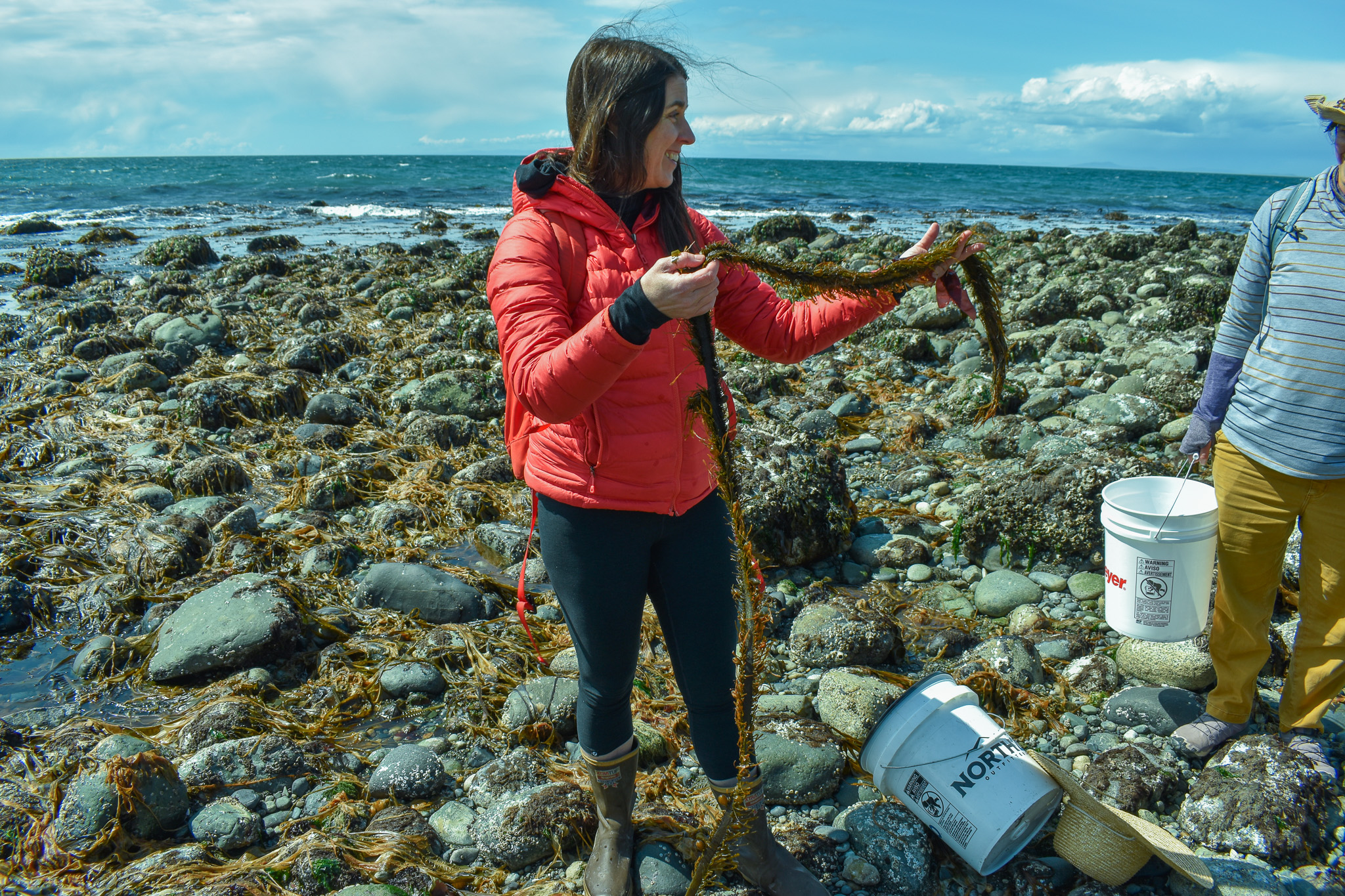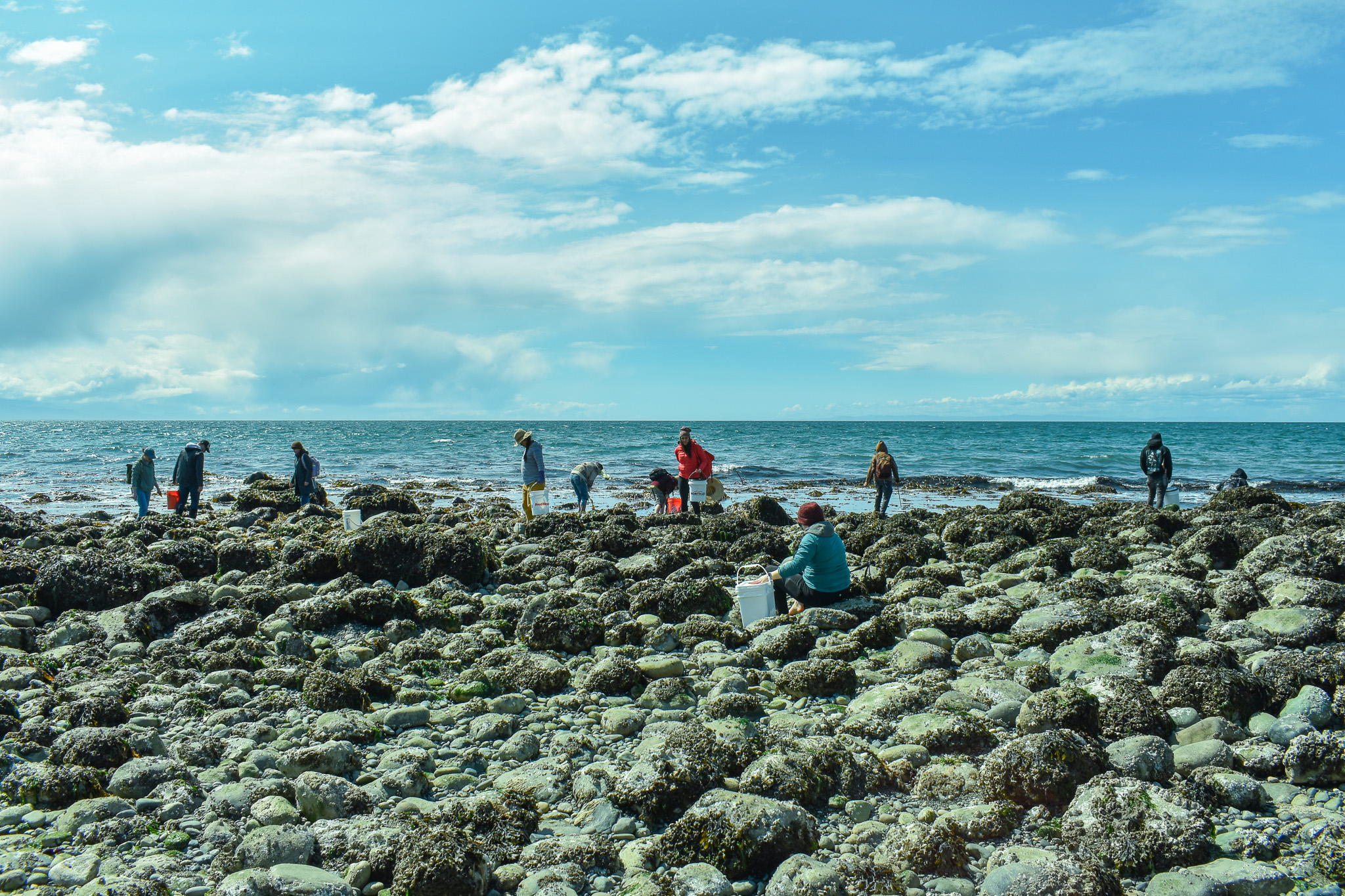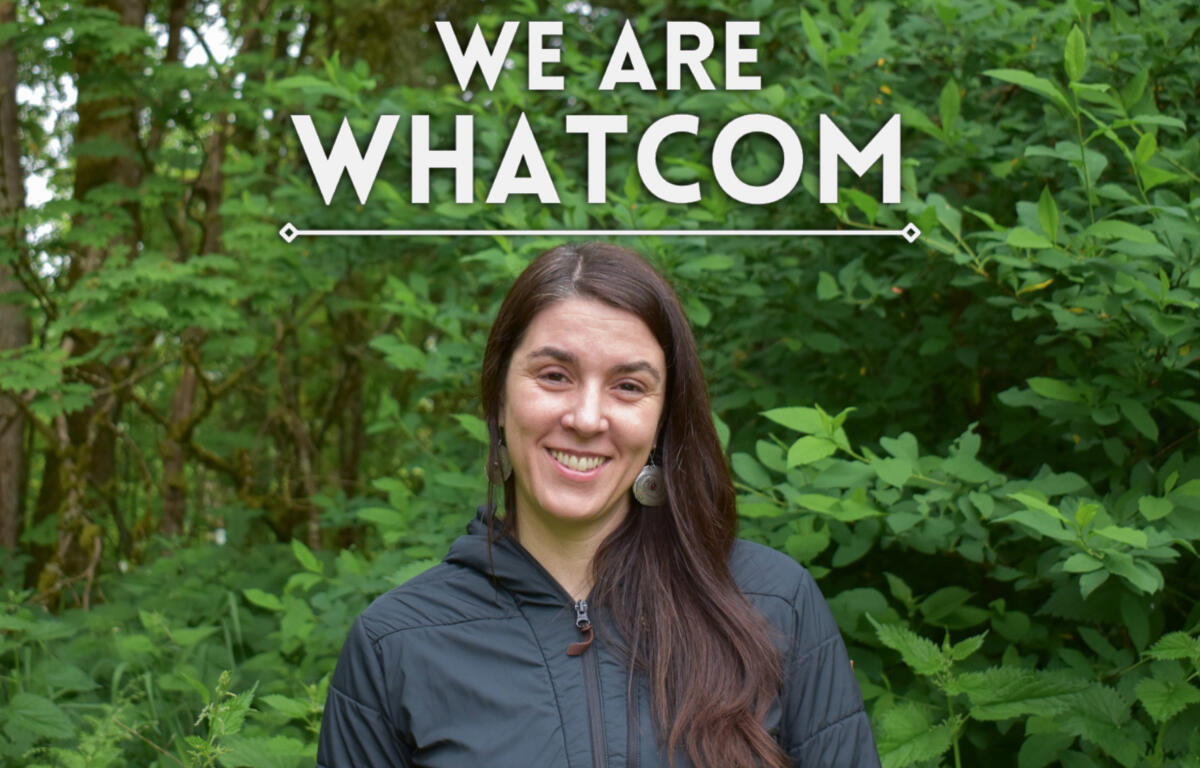WHATCOM COUNTY, WA (MyBellinghamNow.com) – Fort Ebey State Park’s beach is bright under a cloudless sky immediately overhead as a crowd gathers to taste, hold and feel the slippery, thick pieces of kelp, a “plant” closer to fungus than actual plants.
The dozen or so students have shown up to this beach on the west coast of Whidbey Island to experience what it is like to collect kelp and seaweed during the short time you can legally do so on state-managed land. Exposed rock and large barnacles covering the beach create a slightly treacherous walk for some, but that doesn’t stop the group from trying to participate in the workshop.
Wildroot Botanicals founder Leslie Lekos leads the group on harvesting the material after the waves have washed away under an uncharacteristically low tide.
“This one we call gummy worm seaweed,” Lekos said, holding out a stringy, pink plant that looks like the candy.
A bag is passed from student to student with dried pieces of different species for the group to chew on while its freshly harvested counterpart is passed along. This allows the class to see what to look for if they like the flavor of the snack in their mouths.
“Seaweed can be hard to identify because it changes shape in its environment,” Lekos said as she shows off a piece of the plant.

This is one of many classes Lekos will teach throughout the year as part of her Foraging Wild Foods course. From a berry series during the summer to plenty of mushroom workshops in the fall, Lekos takes her students from primarily Bellingham to remote areas of Whatcom and Skagit Counties to show the students what nature has to offer. For the seaweed harvesting workshop, every student had to obtain a Washington state fishing license as well as bring their own buckets and knives to harvest safely and effectively.
“I feel like the thing that I think is one of the most important aspects is how to be on this land in a respectful way for ourselves, for each other and for this land and just how to be good stewards and how to promote health the best way that we can inside of ourselves, for other people and try to create positive change.” – Leslie Lekos
Lekos graduated from Western Washington University’s Fairhaven College with an herbalism concentration. She now works as an educator, doula and community herbalist, serving the greater Whatcom County area.
“I feel like the plants are constantly teaching me things, and [it’s] a constant learning all the time,” Lekos said.
Lekos has taught these classes for over a decade and has worked as an herbalist in the Bellingham area for the last two decades. She also teaches workshops at her land, such as how to make medicinal tinctures, hydrosols, and salves among other things.
“The Foundations of Herbalism class has been a class I’ve been teaching for a long time, and I love that class,” she said. “I just feel people’s senses wake up and just create something that they didn’t expect, really with themselves and community and nature.”
Herbalism in Whatcom County is not unique because, as Lekos said, you can be an herbalist anywhere. What is available to be used in herbalism throughout the county does offer opportunities to use more plants than in less diverse areas.
“We live in an extremely diverse landscape where we have access to alpine environments and down into the beach fronts and everything in between,” she said. “I mean, it’s just an incredible diversity of life. So, there’s just a lot of different types of plants that grow, and we have a lot of access to nature.”

Lekos grew up in the Seattle area and was drawn to herbalism as part of her own healing journey as well as a need to connect with nature. She now teaches on six acres up a windy, rutted road in rural northwest Washington as well as on whatever land she can legally take people to forage wild foods.
“Being out in nature, I feel like just sparks your soul alive,” Lekos said.
Lekos is about halfway through her classes for 2025 called Foundations of Herbalism and Foraging Wild Foods, but she offers opportunities for students to join late to the program or tag along on weekend trips like the one going to the Methow Valley later this month.
“It’s really important to do a lot of research. I think it’s really helpful for people to study with someone that they trust. Books and apps just don’t quite do the same. They’re really helpful. But I think like having a person like hold in front of you what it [is] just invaluable. So, being sure, 100% sure that you know what you’re harvesting for your own safety, but also for the environment,” Lekos said.
Head to wildrootbotanicals.com for more details.
Listen to the full interview with Lekos below:
We Are Whatcom is a weekly column featuring Whatcom County residents making a positive impact on the community. To submit a Whatcom County resident to be featured, click here.



